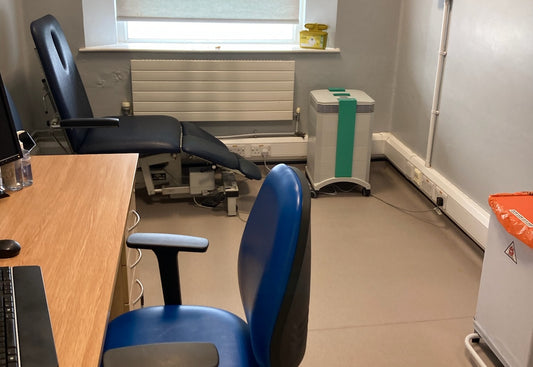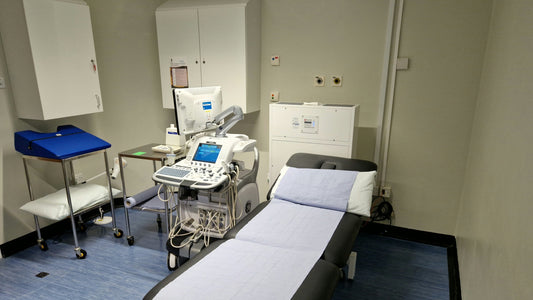Sometimes known as monomer, methyl methacrylate is a very widely used chemical in the dental laboratory. Concerns have been raised over the health impact of methyl methacrylate exposure on dental staff and patients. These effects range from skin and lung symptoms, on short-term exposure, to long-term effects which may even include cancer, though this currently remains unproven. Therefore, it is important that effective air pollution control solution for dental laboratories are in place in dental premises to protect those working, and being treated, from exposure to methyl methacrylate.
What is methyl methacrylate?
Methyl methacrylate is a volatile colourless synthetic chemical with a strong fruity odour. It is used to form a polymer known as poly-methyl methacrylate (PMMA), which is very widely used as a cheap, lightweight alternative to glass, known as Plexiglas (among other names). There are also a number of compounds related to methyl methacrylate which are used in dental technology, including triethyleneglycol dimethacrylate (TREGDMA) and triethyleneglycol diacrylate (TREGDA).
Why do dental technicians use methyl methacrylate?
Methyl methacrylate is used to generate the polymer PMMA in the dental lab which is then used in making dentures and other dental prostheses, and also as a filler/cement.
How do dental technicians become exposed to methyl methacrylate?
Technicians working directly with monomer may absorb it through the skin and by inhalation. Those nearby may be exposed through inhalation. When dental technicians work with methyl methacrylate, it is possible that the vapour (remember, it is volatile) may become dispersed throughout the premises, exposing staff and patients close by.
What are the health effects?
There have been a number of reports of adverse health effects of methyl methacrylate among dental technicians, dentists, other staff and patients. The chemical has been found to have both acute and chronic effects on health, as follows:
Acute effects of methyl methacrylate
- Skin, eye and mucous membrane irritation. Methyl methacrylate has the potential to induce skin sensitisation in susceptible individuals.
- Allergic response
- Chest tightness, coughing, wheezing, shortness of breath, reduced peak respiratory flow
- Asthma attacks – cases of occupational asthma linked to methyl methacrylate have been reported
- A headache and other neurological symptoms such as numbness, pain and whitening of the fingers
- Lethargy, lack of concentration.
Chronic effects of Methyl methacrylate
- Reduced lung function
- Nasal symptoms
- Cardiovascular effects.
Some research does suggest that there may be a causal link between occupational methyl methacrylate exposure and colon cancer and rectal cancer, but this has not yet been confirmed. Methyl methacrylate is not currently classed as a carcinogen. Animal studies on TREGDMA and TREGDA suggest that they cause skin irritation, but are not carcinogenic.
What can be done to prevent exposure?
Methyl methacrylate is one of the chemicals that are subject to control by COSHH (Control of Substances Hazardous to Health) regulations and the long-term (8 hours) Workplace Exposure Limit (WEL) is 50 parts per million (ppm) and short-term exposure WEL is 100 ppm. Dental practices must, therefore, have systems in place to ensure these limits are not exceeded. Methyl methacrylate is heavier than air and tends to travel along the ground so control systems should be positioned to account for this. Room ventilation must be optimised and use of a high-performance IQAir Dental Pro air purifier (with optional IQAir FlexVac) that can absorb chemicals via absorbent charcoal will help minimise methyl methacrylate levels.
Finally, employees who are going to work with methyl methacrylate should be screened for a history of respiratory, skin, kidney and liver disease as these may put them at particular risk of health effects on exposure. Speak to one of Commercial Air Filtration's dental experts and find out whether high-performance air purification could be suitable for your dental laboratory - 020 3176 0524.
References
- Leggat PA and Kedjarune U (2003). Toxicity of methyl methacrylate in dentistry. International Dental Journal 53 (3); 126 -131
- Gosavi S, Gosavi S and Alla R (2010). Local and systemic effects of unpolymerised monomer. Dental Research Journal 7 (2) 82-87




